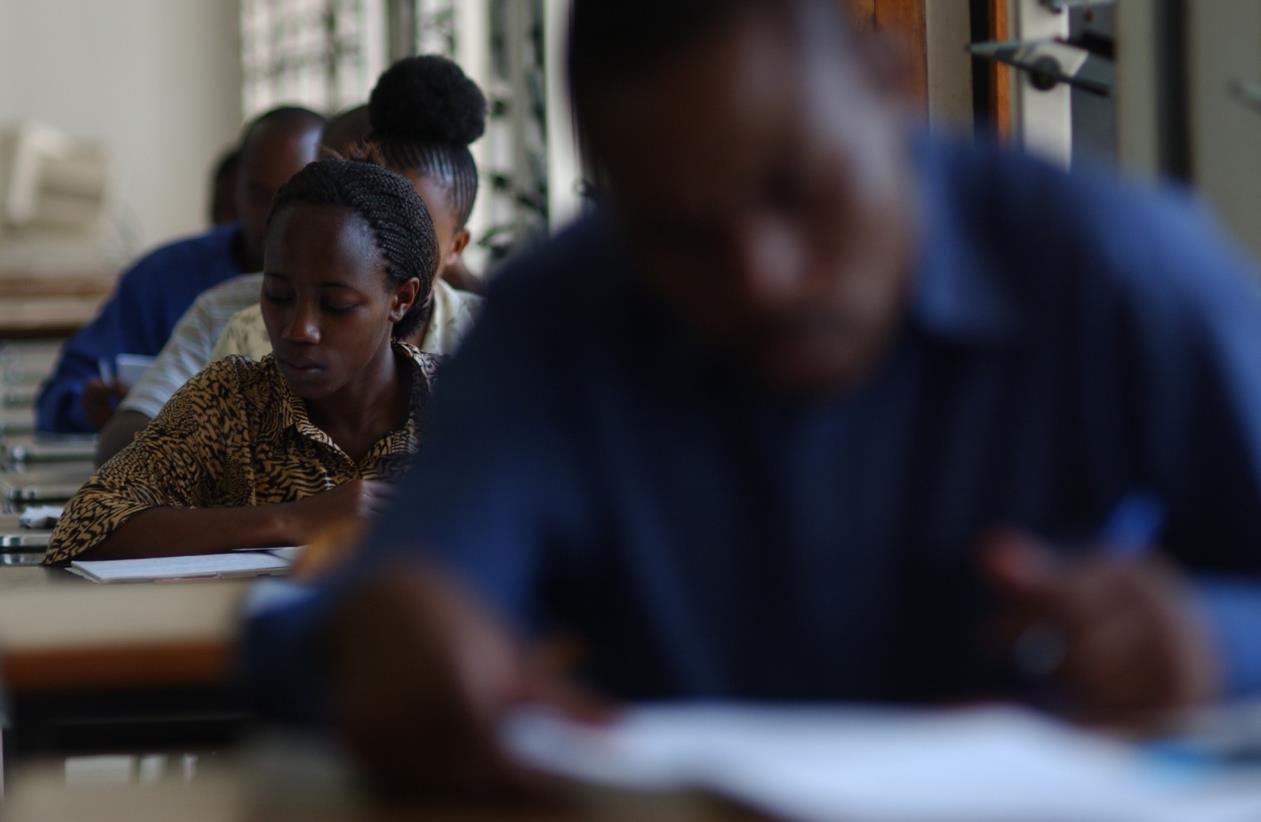Mutual benefit, mutual respect: FAO teams up with young scholars from the Regional Academy on the United Nations

Within the next 50 years, some of today’s youth will become the community leaders, policy makers and decision makers that will determine our planet’s future. Education, training, capacity building, investments in technology and creating youth employment opportunities are key components in establishing an enabling environment in which young people can contribute to building a sustainable future. With this objective in mind, the Food and Agriculture Organization of the United Nations (FAO) is continuing its fruitful collaboration with the Regional Academy on the United Nations (RAUN).
RAUN’s aim is to provide participants with in-depth knowledge about the UN and its functions, to raise their cultural awareness and openness, and to offer a forum for networking and academic exchange. The Academy combines lectures and workshops with practical hands-on-experiences. Apart from their course-work, participants exchange with experts from the United Nations or partner organizations on a regular basis for consultations and discussions allowing them to contribute in finding innovative solutions to contemporary global challenges. In 2021, six young scholars from diverse disciplines collaborated with FAO on two research papers related to the topic “COVID-19 recovery: towards more resilient and inclusive solutions.”
Added value of fresh and diverse perspectives
COVID-19 is a global health crisis that affects us all but the particular focus of this call was to understand how structural inequalities have contributed to aggravating the impacts of the pandemic and its implications for vulnerable communities. The ultimate goal was to look at solutions that help build resilience and prepare societies for future crises in an inclusive and equal manner. Two research/policy papers have recently been published on the RAUN website as a direct result of collaboration with experts from the FAO Office of Climate Change, Biodiversity and Environment (OCB) and the FAO Forestry Division (NFO):
- The Koronivia Joint Work on Agriculture: Towards a more sustainable and resilient agriculture to foster post-COVID recovery and prevent future pandemics
This research paper gives insights into how the new variable of COVID-19 plays an important role in the dynamics between agriculture, climate change and food security, and how these linkages can inform the United Nations Framework Convention on Climate Change (UNFCCC) KJWA process towards more resilient agrifood systems. - Public-Private Partnerships for the Promotion of Nature-based Solutions in Urban Settings
Nature-based Solutions are an innovative strategy to address numerous environmental and social challenges, which have been exacerbated by the COVID-19 pandemic. This research focuses on the potential of Public-Private Partnerships (PPP) in creating sustainable and equitable green spaces in cities. Based on innovative practices developed by three cities from different continents (Barcelona, Buenos Aires, and Kampala), new evidence and recommendations to policymakers and stakeholders are provided in this paper.
A win-win partnership
Paula Roig, a student from the Autonomous University of Barcelona, who worked on the Koronivia Joint Work on Agriculture paper says that the experience was “a great opportunity to get an insight into the way of working of the UN and FAO, it was inspiring to conduct research with a view to inform policy.”
“The project provided us with the opportunity to learn from FAO’s comprehensive approach when it comes to overcoming the challenges concerning our food systems, agriculture and sustainable development,” says Mario Ghioldi, International Business School of Budapest.
However, there is no denying that the mentorship programme is a win-win situation with many benefits for FAO too. The partnership delivers innovative research on topics that matter to FAO, encourages the inclusion of diverse views, particularly those of youth, and increases FAO visibility with research papers published on the RAUN website and presented in a final conference attended by students, experts NGOs and UN Staff.
“At FAO we often think we have all the pieces of the puzzle when it comes to solving the complex challenges of ending world hunger and tackling the COVID-19 and climate crises, but when we collaborate with other entities, we quickly realize that this is far from the case”, says Anneleen Van Uffelen, FAO mentor and former participant in RAUN programme. “University researchers are always up to date on the latest developments in their fields, which can take time to be recognized by international processes and organizations. This collaboration speeds up the process by promoting direct access to ongoing research developments.”
The FAO-RAUN partnership confirms the fundamental contribution that youth make to FAO’s work by bringing fresh, engaging and innovative perspectives. It taps into youth’s potential as a driving force for ideas and innovation, while acknowledging the importance of collective action when it comes to solving global challenges.
As another participant, Eduard Grau Noguer, Autonomous University of Barcelona & Barcelona Public Health Agency, highlights, “the collaboration allows upcoming PhD candidates to get in touch with a piece of the real UN world through FAO.” The same can be said for FAO: the partnership allows the Organization to tap into a world where youth’s voice is increasingly powerful and relevant, a voice that must be heard if we want to solve the puzzle and feed close to 10 billion people by 2050.
Get involved
- More information about RAUN: http://www.ra-un.org/
- Email contact: [email protected]
- All 2021 RAUN research papers: http://www.ra-un.org/2021-papers.html
Useful links
- Koronivia Joint Work on Agriculture
- Green Cities Initiative ; Urban and PeriUrban Forestry FAO website
